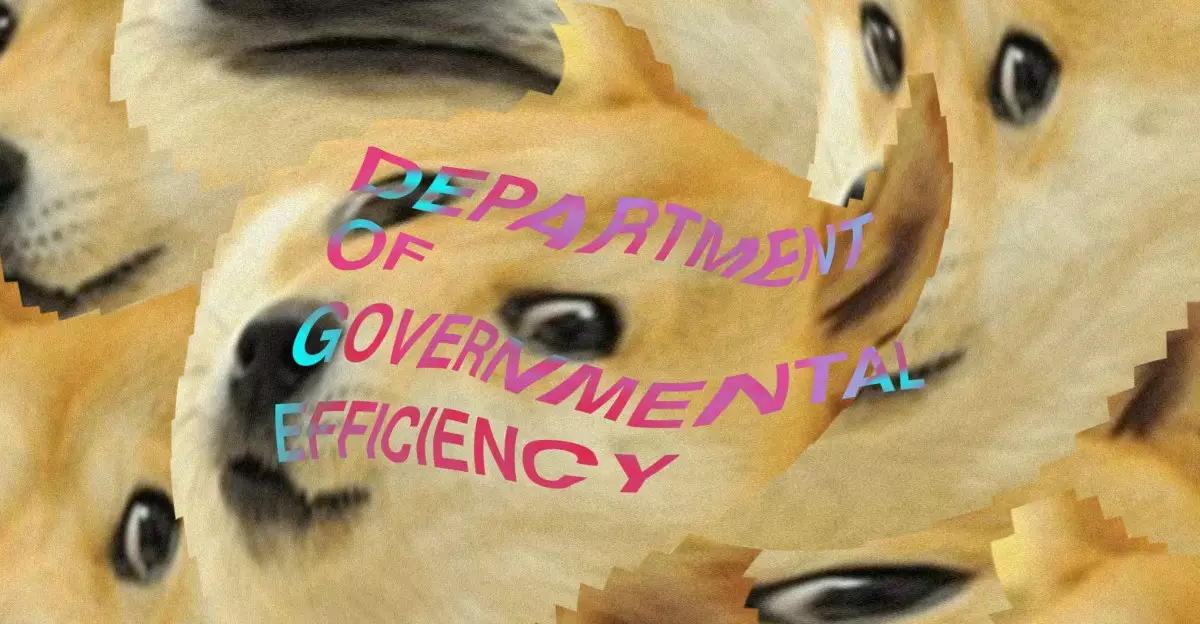The recent developments surrounding Marko Elez, a 25-year-old staffer within a government efficiency department, raise significant questions regarding the intersection of social media expression and professional ethics. Elez reportedly had extensive access to the U.S. Treasury’s payments system, an alarming prospect given the sensitive nature of the information and systems he had at his disposal. His connection to the Treasury Department is alarming, considering that he not only had the ability to influence code within critical financial infrastructures but also displayed controversial and offensive views online. This juxtaposition of power and personal beliefs invites scrutiny regarding the vetting process for government employees and the oversight mechanisms that should be in place.
Elez’s social media history, particularly a now-deleted account, revealed posts advocating for regressive policies such as the reinstatement of a “eugenic immigration policy” and derogatory remarks towards certain ethnic groups. This behavior highlights the double-edged sword of social media—platforms that allow individuals to express their opinions freely but also reveal their darker inclinations. The fact that Elez’s offensive statements were made through a pseudonym raises questions about accountability in digital spaces. Should past behaviors on social media define an individual’s capability and worth, especially for someone in a position with such significant responsibilities?
Elon Musk’s role in the ongoing saga is also not without significance. Following inquiries from The Wall Street Journal about Elez’s conduct, Musk conducted a poll on social media, asking followers if Elez should be reinstated despite his controversial online statements. A staggering 78% of nearly 400,000 respondents voted in favor of bringing him back. This colorful engagement from a high-profile figure underscores the complicated terrain where technology, influence, and personal ethics converge.
Moreover, Vice President JD Vance’s statement in Elez’s defense sheds light on a broader cultural dialogue. It captures a sentiment that resonates with many—while offensive viewpoints are problematic, they should not entirely dictate one’s professional future. Vance noted that he disagrees with Elez’s sentiments but believes that “stupid social media activity” should not ruin a young person’s life. Both Musk and Vance illustrate a broader narrative that encourages forgiveness and redemption versus outright condemnation.
Elez’s case is emblematic of a critical discussion on governance and the role of social media scrutiny. It opens up vital conversations about the ethical standards expected from public servants, how we interpret past behaviors in light of evolving societal standards, and the mechanisms that could be advisable to prevent similar controversies in the future. As digital footprints become increasingly visible and inescapable, the tension between an individual’s past actions and present responsibilities will continue to be a topic of crucial importance.
In reflecting upon this situation, it becomes evident that the intersection of technology, governance, and personal expression is fraught with complexity, requiring clear guidelines and thoughtful discourse as society navigates the implications of these interactions. Marko Elez’s return to a role with significant power invites scrutiny, represents a challenge to ethical boundaries in governance, and underscored the ongoing debate surrounding the accountability of individuals and institutions in the digital age.


Leave a Reply
You must be logged in to post a comment.